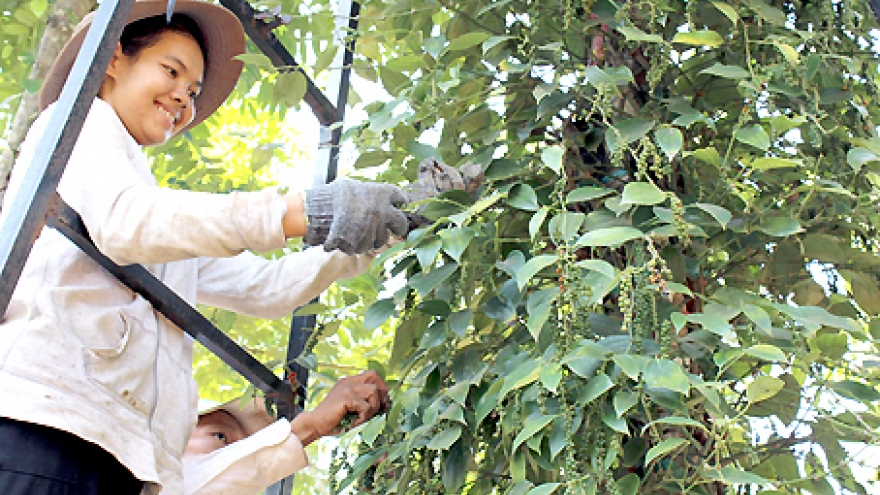Food safety issues continue to haunt produce exports
VOV.VN - How to supply large volumes of produce in compliance with strict Global GAP safety standards is problematic for the nation’s growers and exporters, says the Vietnam Fruit & Vegetables Association.
 |
Speaking at a recent business forum, Dr Dat, who sets on the executive committee of the Association, said the importance of growers getting control of chemical abuse is of paramount importance.
It is particularly relevant to the proposed Trans Pacific Partnership (TPP) that involves the 12 countries of the US, Japan, Malaysia, Singapore, Brunei, Australia, New Zealand, Canada, Mexico, Chile, Peru and Vietnam.
Currently, Dr Dat said, the produce industry has made some promising inroads abroad shipping dragon fruit, mango, lychee and longan to the TPP member states of Japan, Australia and the US.
But they, as of yet, haven’t done so profitably, and in actuality, recent shipments to Australia were sold at a loss.
Though the TPP is bogged down in the ratification process and may never materialize, Dr Dat noted that even if it were to pass, the benefits of tariff reductions to these markets would not be all that crucial.
The import tariffs levied by Japan over recent years on produce have averaged 4.8%, while Australia doesn’t impose an import tax and the US rate has averaged right at 8%.
The other TPP member states of Singapore, Malaysia, Brunei, New Zealand and Chile also do not impose any tariffs on produce imports while Peru’s tax has averaged 6% and Canada’s 20%.
In the overall scheme of things, the tariffs are simply not as important as food safety, as the future of the industry doesn’t hinge on lower tariffs but on higher food safety, Dr Dat underscored.
The industry, as a whole, has been caught up in a vicious cycle for which it has continued to lower its quality standards and then has reduced its sales prices in hopes of increasing the volume of exports.
This unprofitable cycle of chasing volume needs to be broken and growers need to adopt a motto of selling quality produce at a fair price (in lieu of low quality at a cheap price).
In order to produce large volumes of quality product profitably the industry must tighten control over the use of pesticides and other chemicals, upscale the size of farms and modernize it practices with the use of advanced technology.
He said eliminating the use of pesticides and other chemicals will help minimize production expenses, in addition to bosting food safety and— in the final analysis set the stage for Vietnam grown produce to develop a positive global image and profitably increase its global market share.
Food safety and hygiene issues have been and will continue to haunt Vietnam produce in all major markets around the globe, said Dr Dat, until it is produced consistently on a large scale in compliance with VIETGAP and Global GAP standards.



